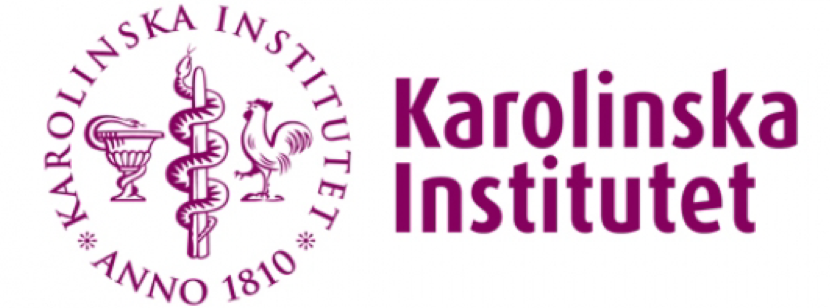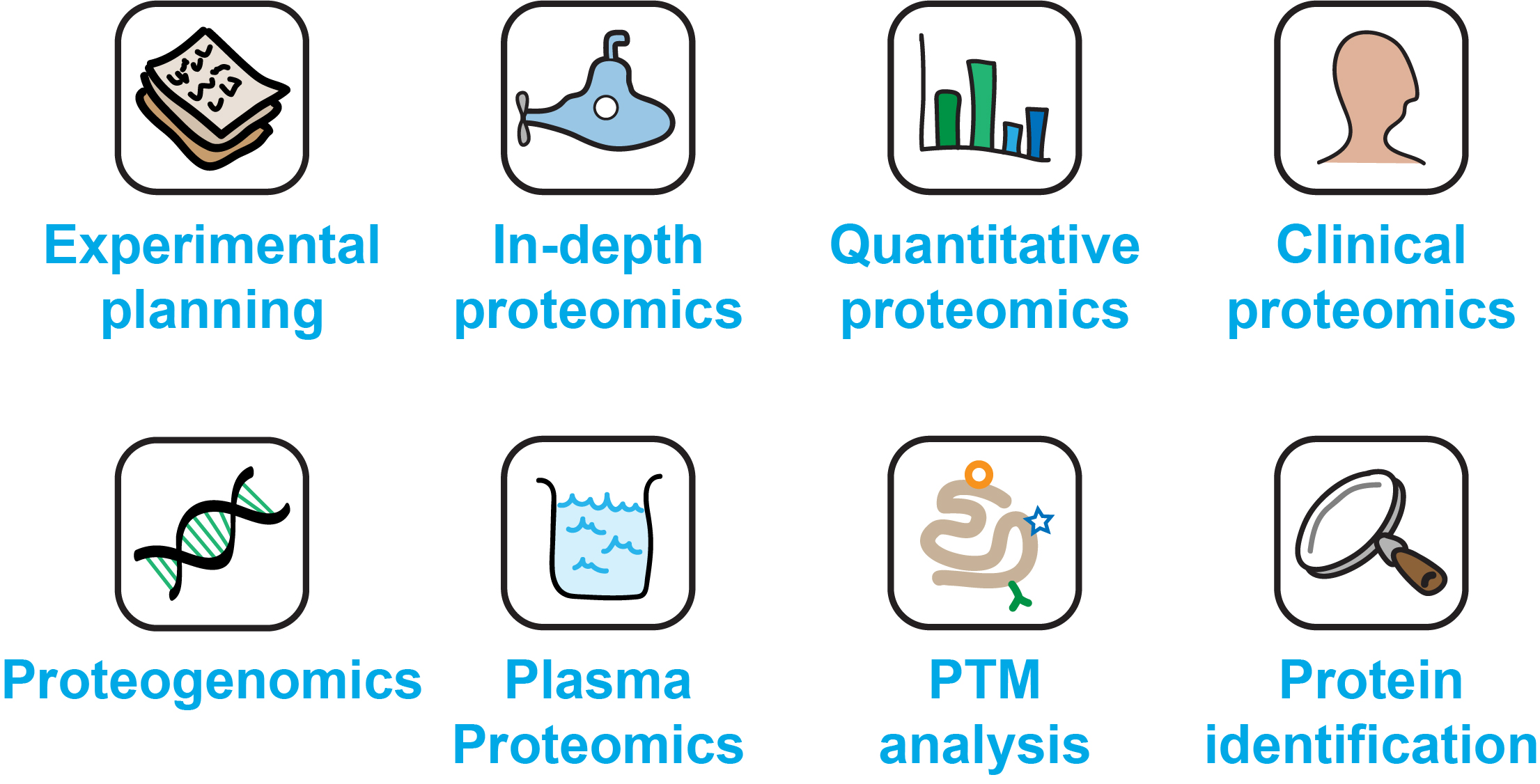 ALERT
ALERT **Important for iLab Users**
The Help link in iLab opens an email to contact Support. To submit or track requests, visit: Submit and Track Support Requests



Clinical Proteomics Mass Spectrometry (MS) is a core facility that offers you an opportunity to analyze the proteome composition of biological samples. We provide expertise and services in a wide range of MS-based proteomics methods with focus on in-depth quantitative proteomics, clinical proteomics and proteogenomics. The facility also offers expert support in experimental design as well as downstream data analysis to ensure a high quality service.
We continuously strive to develop and implement cutting edge research methods in our services. This is exemplified by the level of data produced by the HiRIEF method used for in-depth proteomics, and by our continuous development of bioinformatics methods for optimal use of the generated data. The financial support for the facility is provided by the Swedish Research Council (Vetenskapsrådet, VR), Stockholm county council (Region Stockholm) and SciLifeLab.

Start-up meeting and Experimental planning (free of charge). We always offer a start-up meeting to go through the user request in detail and if needed refine the original experimental plan.
In-depth proteomics. Analytical depth is key to understand biology in all of its complexity. Based on our in-house developed methods for improved analytical depth in proteomics experiments (HiRIEF), we are able to offer state-of-the-art coverage of the proteome. In a fully complex sample this often results in the identification of more than 10 000 unique proteins.
Quantitative proteomics. In most proteomics applications the primary interest is to compare the abundance of proteins between samples. This requires sensitive and accurate quantification of protein levels between samples. We apply both multiplexed methods like TMT and label-free methods for quantitative proteomics. In particular, our HiRIEF method is integrated with multiplexed methods to generate accurate relative quantification of thousands of proteins in up to 16 samples in a single experiment.
Clinical proteomics. We have a long experience of clinical proteomics projects including a wide variety of different human tissues and body fluids. In many cases the sample preparation procedures needs to be tailored for the specific samples and we will assist you in this. In optimal cases we are involved from early phases of the project to ensure that sample collection is optimal for downstream proteomics analysis.
Proteogenomics. An exciting field in biological mass spectrometry combining proteomics information with sample specific genomic information. it is used to discover novel protein coding regions/genes and to provide protein level-evidence to confirm the protein coding potential of a gene; thereby improving genome annotation. Proteogenomics can be used to detect novel protein species (mutated proteins, fusion proteins, pseudogenic proteins etc.) and to analyze the influence of genomic variants and aberrations on the molecular phenotype; for example influence of genomic aberration on protein levels, pathway activations, splice variants and PTM status. We offer clinical proteogenomics by patient specific protein sequence analysis based on DNA sequencing data, and create customized databases for analysing novel and variant peptides (long non-coding RNAs, SNPs etc), meta proteomics and 6RF whole genome searches.
Plasma proteomics. We use our HiRIEF method for robust and in-depth quantification of proteins in plasma. From 40 uL non-depleted plasma we profile on average > 1000 proteins over large sets of clinical samples.
PTM analysis. The functional state of proteins is heavily dependent on the addition of functional groups, so-called post translational modifications (PTMs), to the primary amino-acid sequence. Therefore it is often relevant to investigate the protein PTMs, for example phosphorylations. Such analysis typically requires specialized sample preparation including enrichment strategies, and we can help with guiding users among these applications. We offer global phosphoproteomics analysis as well as analysis of other post-translational modifications such as acetylations.
Protein identification. In a range of different applications, the primary interest is the qualitative identification of the proteins that are present in a biological sample. Examples of such applications are protein interaction studies and protein complex studies, with protein enrichment by for example BioID and IP-MS. These enriched samples are often of lower complexity, but with limited amount of starting material and consequently we adapt the experimental setup accordingly.
Mass spectrometers
MS timsTOF Pro, Bruker.
MS timsTOF SCP, Bruker.
MS timsTOF HT, Bruker.
MS Orbitrap Exploris 480, Thermo Scientific.
MS Orbitrap HF Q Exactive, Thermo Scientific.
Peptide separation technologies
HiRIEF (High Resolution Isoelectric Focusing)
Liquid Chromatography (nanoUPLC/HPLC/FPLC) Dionex, Agilent
Robots
Ettan Digester (modified Gilson 215), GE Healthcare Life Science
Pi-pet Sampleprep (modified Tecan Xantus), LAT
Platform Scientific Director:
Prof. Janne Lehtiö, PhD
Head of Unit:
Maria Pernemalm, PhD
Lukas Orre, PhD
Research engineers:
Ghazaleh Assadi, PhD
Xiaofang Cao, PhD
Georgios Mermelekas, PhD
Eduardo Araújo, PhD
Konstantin Barylyuk, PhD
Scientists:
Rui Branca, PhD
Rozbeh Jafari, PhD
Henrik Johansson, PhD
Mattias Vesterlund, PhD
Scientific programmer:
Jorrit Boekel, PhD
Bioinformatician:
AnnSofi Sandberg, PhD
Scientific coordinator:
Helena Bäckvall, PhD
Lab manager:
Laura Levi, PhD
| Hours | Location (delivery address) |
|
Monday-Friday 08:00-17:00h |
SciLifeLab Tomtebodavägen 23B Alfa floor 1, Mass Spectrometry 171 65, Solna |
The core unit is not engaging/handling any new requests/projects during summer and Christmas holidays:
| Name | Role | Phone | Location | |
|---|---|---|---|---|
| ProteomicsCore |
general mailing address for the core facility
|
proteomicscore@scilifelab.se
|
SciLifeLab, Tomtebodavägen 23B, Alfa floor 1
|